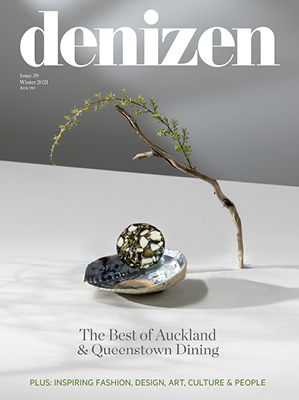As the Co-Founder and Artistic Director of fantastical furniture brand Moooi, Marcel Wanders is widely recognised for his playful designs, intricate patterns and products that unite high-tech materials and handicrafts. Over a career that has spanned several decades, the provocative and philosophical Dutch designer has become one of the leading international figures in the design industry. Having created home furnishings for dozens of notable European firms, cutlery for Christofle, compacts for M.A.C Cosmetics, and interiors for numerous luxury hotels the world over, here we discover what makes the man tick.
Can you describe your design philosophy in a few words? Anti-modernistic, romantic, personal, subjective, non-democratic, humanistic, meaningful, sustainable and durable.
What do you mean by anti-modernistic? We live in a time where we, as people, are beyond modernism. The philosophy (which is 120-150 years old) is one where rationality is celebrated at the highest level, making us calculate and define everything. There is no romance, no poetry, no surprise — only calculations. That is modernism.
So you’re against this thinking? We have been building a throwaway society based on the idea of modernism. One of modernism’s most significant dogmas is that the past is irrelevant to the future. We have to destroy this thinking if we want to have a chance to go further. I have always believed we have issues with materialism, but we actually have a bigger, psychological problem. Seventy percent of the things we throw away are not actually broken, it’s just that we can’t stand the idea that there is a newer thing than the one we already have. That’s how sick our psychology is. So what does that mean for the things I make today? That they are irrelevant? That’s where I think I’ve had a di erent idea all along; by making new antiques, not recyclable furniture, but things you will want to keep forever.
How would you describe your design principles? The contemporary renaissance of humanism. Whereby, we the people feel that maybe we are not the rational beings we originally thought we were. We don’t really understand what is happening. We know that we are spiritual beings with emotions and that’s the only way we are going to compete with the robots. Knowing that irrationality might just be one of our best qualities, I want it to play out in my work. Emotional irrationality exists in theatre and the arts, but you rarely see it in architecture or design, which is something that I strive to express.
Fifteen years ago, furniture as art was the reigning movement and you its leader, how did this come about? At that time, the internet was really changing the way we marketed things. It allowed us to make special pieces because it was easier to find that one person in the world willing to buy your design. Before then, it was all about industrialisation, where the only way to create a successful product was to replicate it over and over again in order to get marketing and international recognition. The internet created the opportunity to make a di erent type of product; I could design something for a company such as Baccarat, an exceptional piece of crystal worth €50,000, and the market for this item was no longer limited to select areas in Paris. The internet has opened it up so that someone in a far-flung corner of the world can have anything that catches their eye with very little marketing required.
The word ‘playful’ is often used to describe your work. Do you see this as appropriate? My thinking about design is that I want it to be positive. If I can make an impact on the world and have my designs everywhere, then I want them to show the love, respect, trust and commitment I have for the world. After 25 years of creating beautiful things, I see myself in everything I produce. But there is still a fear inside of me that I feel I couldn’t translate into some of my work because I didn’t think it was the right context. I realised eight years ago, that if I want to be a creator and be completely honest, I needed to find another outlet for my dark ideas, my not so ‘playful’ ideas. I wanted my sensitivities to play out in reality so I started to make more critical objects, darker objects. Then I met the artist Friedman Benda and we collaborated on an exhibition. I wouldn’t call it design — it’s intimate and very personal work.
Moooi products are available exclusively from ECC










